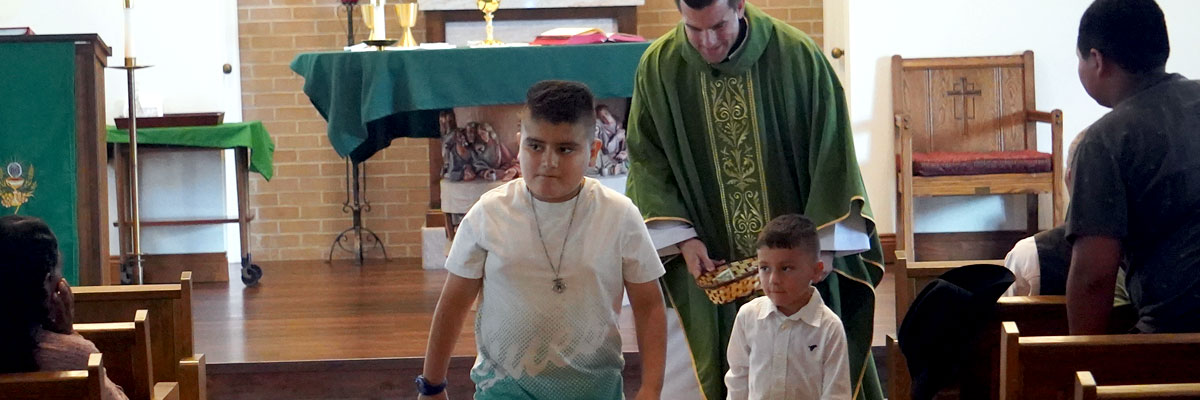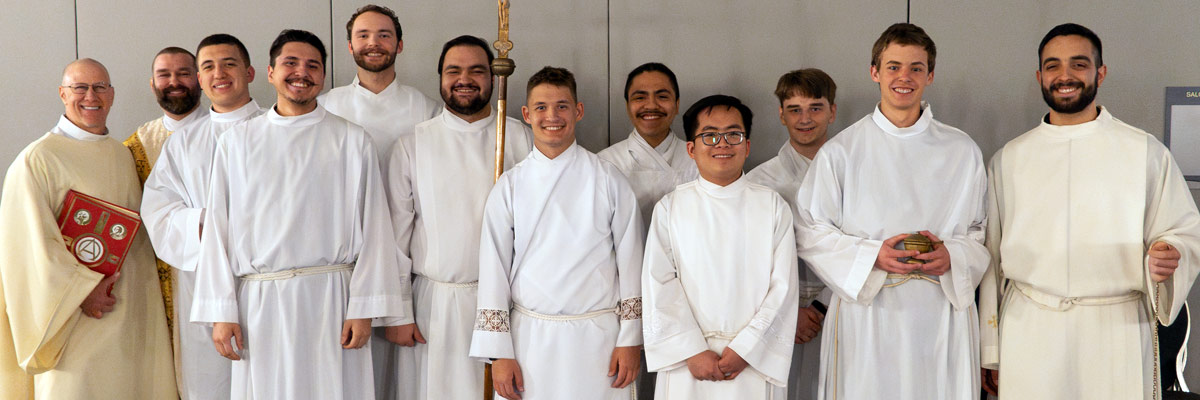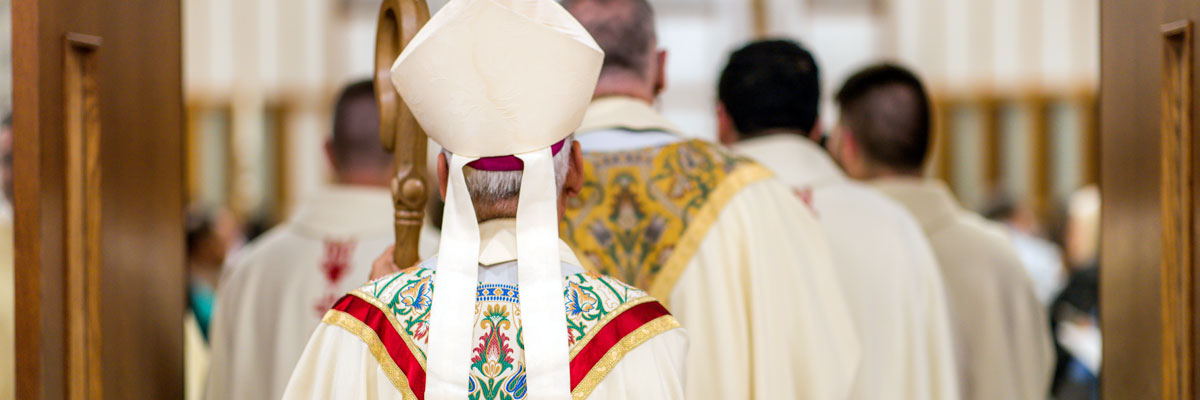Official Website of the
Catholic Diocese of Little Rock
Deacon Ordination Daniel Wendel
Published: May 26, 2021
Bishop Anthony B. Taylor preached the following homily at Christ the King Church in Little Rock on Wednesday, May 26, 2021. It is based the second reading, 2 Corinthians 4: 1-2, 5-7.

Bishop Taylor
Our second reading today from the Second Letter to the Corinthians is one of the readings most recommended for the ordination of deacons, priests and bishops. Even though I have ordained 51 transitional deacons, 41 permanent deacons and, as of this coming Saturday at Barton Coliseum, 49 priests in the past 13 years, to my knowledge Daniel is only the third person to have chosen this reading for his ordination.
So, I would like to speak about that reading today and what it means for us who are called to serve the Lord in ordained ministry, namely 1.) that we are called to courageous proclamation of the Gospel; and 2.) that we are called to radical service. As St. Paul says, “we do not preach ourselves but Jesus as Lord, and ourselves as your slaves for the sake of Jesus.”
1.) In this passage St. Paul first points out the difference between those who seek to glorify the Lord by their preaching and those who seek glory for themselves, to impress others and win the favor of the audience rather than truly preach the Gospel — and in particular, the cross. Even in St. Paul’s day there were those who preached the prosperity Gospel, part of what St. Paul calls “falsifying the word of God.”
God bestows on you today all the graces you need to serve him faithfully as a deacon — and a year from now as a priest — committed like St. Paul in our Scripture readings today, to the courageous proclamation of the Gospel and a life of humble service in and through the Church, modeled on that of Christ.
I was once in a non-Catholic Bible study where the lesson of the day suggested that if you are faithful, God will shower every blessing on you, free you from worry, protect your reputation and cause you to prosper in business because your life is in order, etc. I interrupted to point out that it didn’t seem to work that way for the Twelve Apostles.
Jesus didn’t say “take up the easy life and follow me.” He said, “take up your cross and follow me.” Paul insists that we are to preach our share in the Jesus’ cross as well as our share in his resurrection, and a lot of people don’t like to hear about the redemptive power of suffering freely embraced out of love for God, especially when the message is counter-cultural.
Have you ever noticed how beautiful many of our crucifixes are? Not much blood, nice physique. But Jesus’s actual crucifixion was not beautiful. He looked terrible and it was humiliating and unpleasant in the extreme and the same is sometimes true for the message the Lord wants us to proclaim, hence the courageous proclamation of the Gospel to which you and I are called. St. Paul challenges us not to “preach ourselves but Jesus Christ as Lord.”
2.) And then St. Paul speaks about radical service, describing himself as “your slave for the sake of Jesus.” There is nothing more radical than that! To be a slave means to belong to someone else and to live one’s life in humble service. Daniel, by ordination you become united to Christ about whom St. Paul writes in his famous Philippians hymn (Phil 2:6-11): “though he was in the form of God, did not regard equality with God something to be grasped. Rather he emptied himself, taking the form of a slave … humbled himself, becoming obedient to death, even death on a cross.”
And of course, this language of Jesus’ humble obedience and union with the Father who sent him to dedicate his whole life to serving us and thus redeem us corresponds nicely with the promise of obedience you make today as you commit yourself to dedicating your whole life to serving the people entrusted to your care. And this also speaks to your promise of celibacy: Jesus was not married to any one person; his bride was the whole Church — and the same will be true also for you.
Daniel, in Greek the word for deacon, "διάκονος," means “servant,” not “slave,” which would be "δουλος," but the longer you are in ministry, the greater you will feel the Lord’s claim on you, to the point that St. Paul’s language of being God’s slave for the sake of Jesus will begin to make more and more sense.
God bestows on you today all the graces you need to serve him faithfully as a deacon — and a year from now as a priest — committed like St. Paul in our Scripture readings today, to the courageous proclamation of the Gospel and a life of humble service in and through the Church, modeled on that of Christ.








